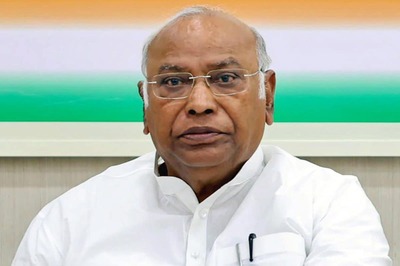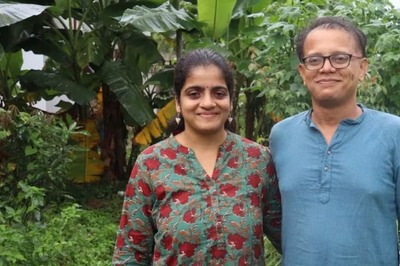
views
It has been nearly two decades since the passing of one of India’s greatest composers, the man who changed the face of Hindi film music in the 1970s, but Rahul Dev Burman lives on in his evergreen music. It has the special quality of appealing to people of every age group, and has inspired and influenced many musicians. Be it through films being made around his music or classic melodies being revived in the form of remixes, Pancham da has been paid tribute to over and over again, as his tunes continue to amaze with their freshness and creativity. RD Burman: The Man, The Music, a book that explores both the personal and professional sides of one of the country’s most popular and prolific music directors, was launched at Crossword bookstore on an evening filled with nostalgia, leaving one to wonder at the marvel that Pancham Da was and his ability to keep generation after generation of the Hindi film viewer captivated by his unique music.The book, which has been coauthored by Anirudha Bhattacharjee and Balaji Vittal, saw the latter in conversation with renowned playback singer Padma Bhushan SP Balasubrahmanyam. He relived the memories of the bond he shared with RD Burman, from his first meeting with in the mid-70s to the very last time he saw him. SPB spoke of the legend that Pancham da became. An aspiring composer living under the shadow of his father, SD Burman, Pancham rose to fame with his unusual use of instruments, piquant chords, small ensembles of musicians, and his flair for sound mixing and balancing.“The ‘50s and ‘60s were a time when the composer duo Shankar-Jaikishan reigned, with their combination of classicism and modern orchestration,” SPB said. RDB’s entry on the scene and his different take on film music was naturally a refreshing change. “His usage of bass guitar, particular rhythm patterns and the fact that he never let beat overtake melody is what made him a unique composer.”Right from his first film (Chhote Nawab) to his last (1942 A Love Story), Pancham da regaled the country with his impressive range. From the energetic Aaja Aaja to the brooding, slow Chingari Koi Bhadke, and the modern Chura Liya to the romantic, lilting Kuch na Kaho, RDB showed that he was not just the personification of rhythm, as he is often called, but also the king of melody.Pancham da was a revolution, appealing immensely to young listeners with his use of modern, western beats, but he was equally comfortable with classical and other genres of music, and was, as SPB said, a ‘complete’ musician. “He not only composed the songs in the film, but also the background score, and was involved in the mixing as well. He had an extraordinary memory too,” he said.The book tells the story of the life of the man who was ahead of his time, the man who introduced Indians to different genres of music, and whose songs remain fresh and modern to date. Bhattacharjee and Vittal have painted a picture of a man who has been immortalized in his music, and will continue to be remembered for his innovative style.




















Comments
0 comment